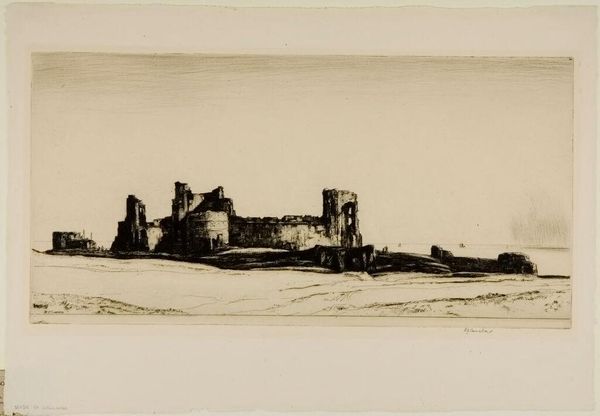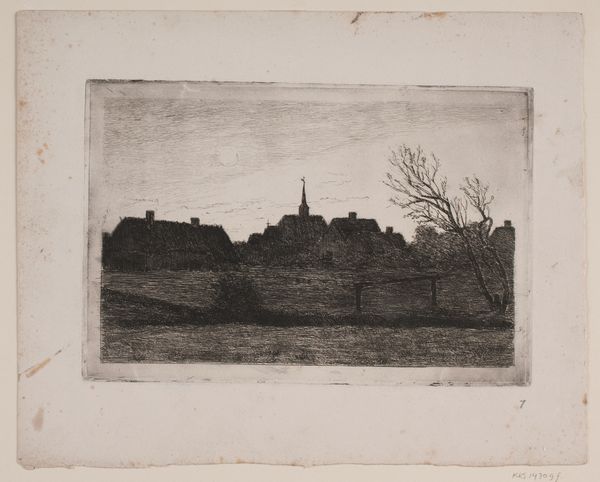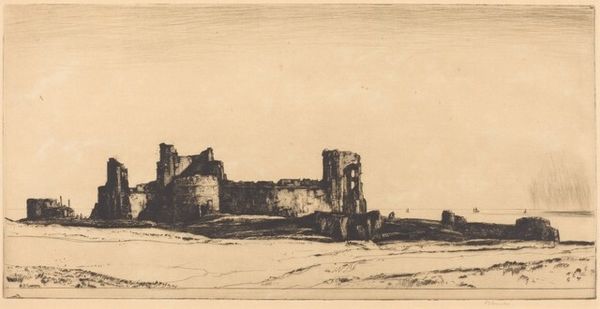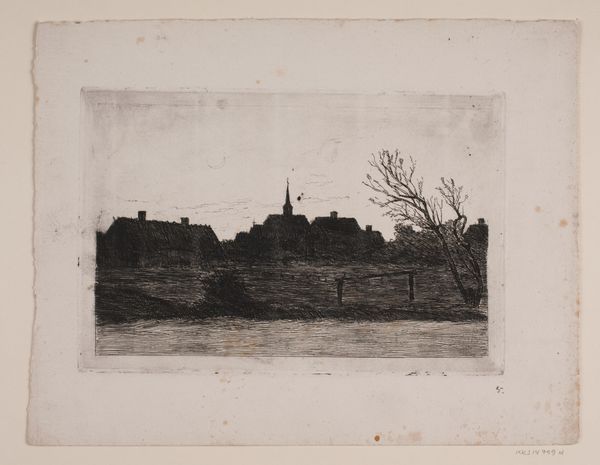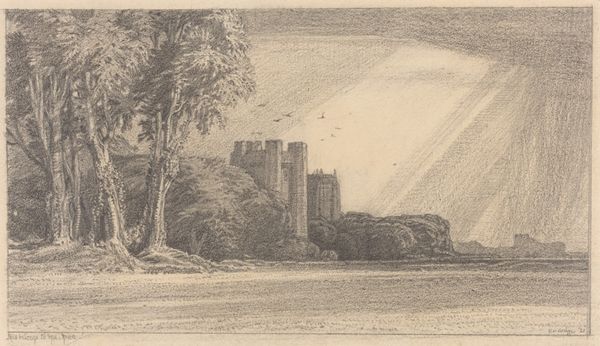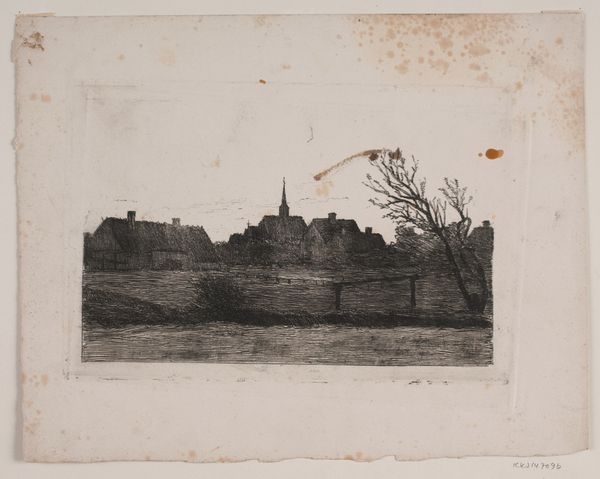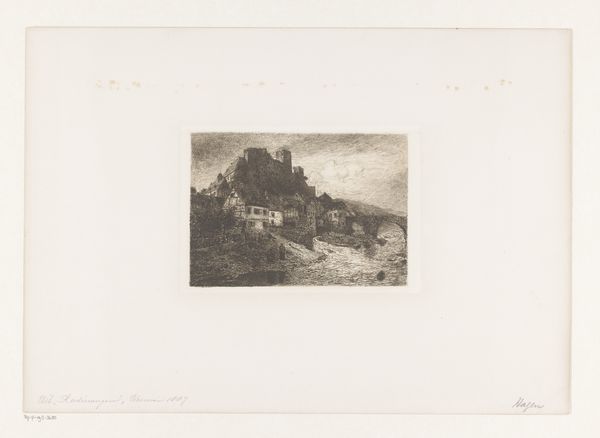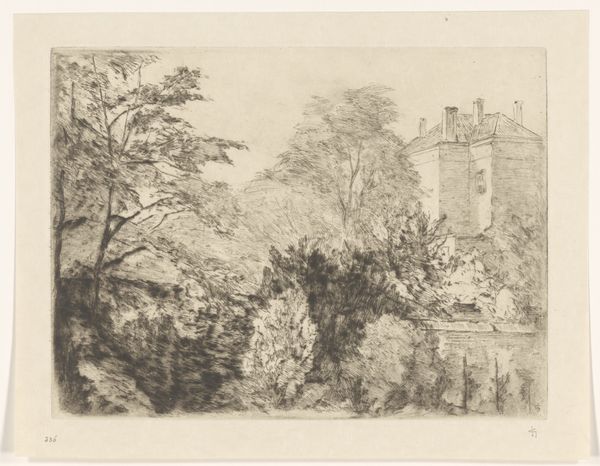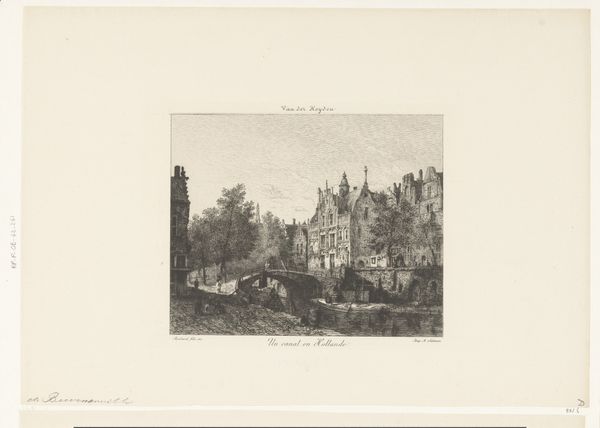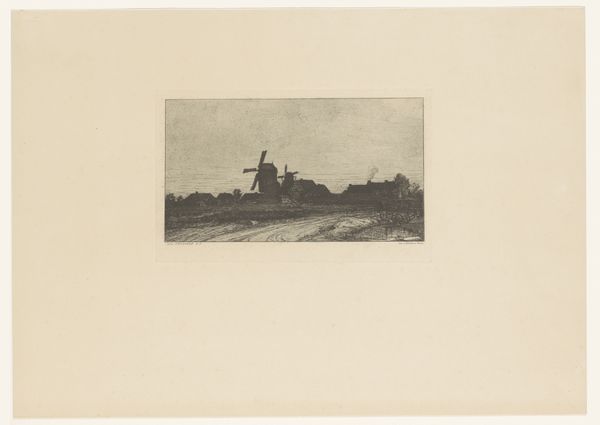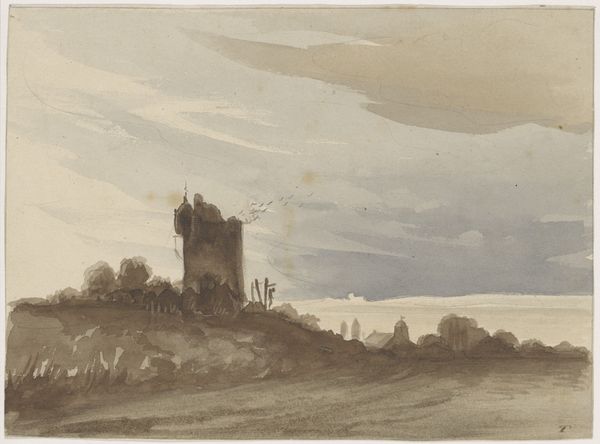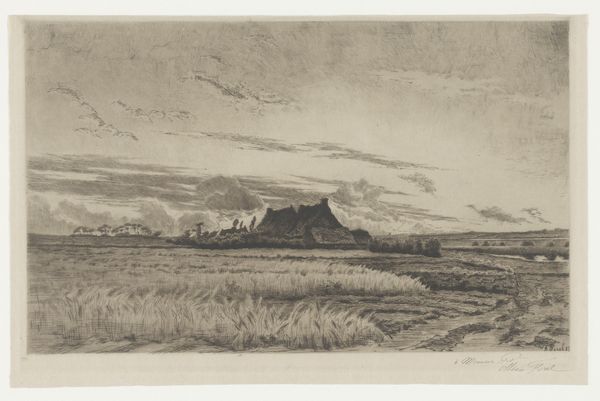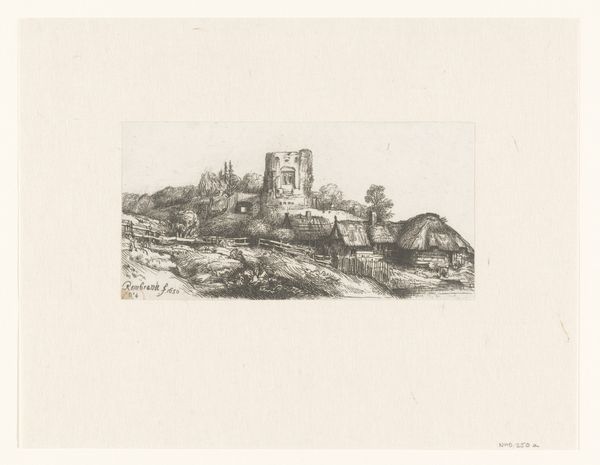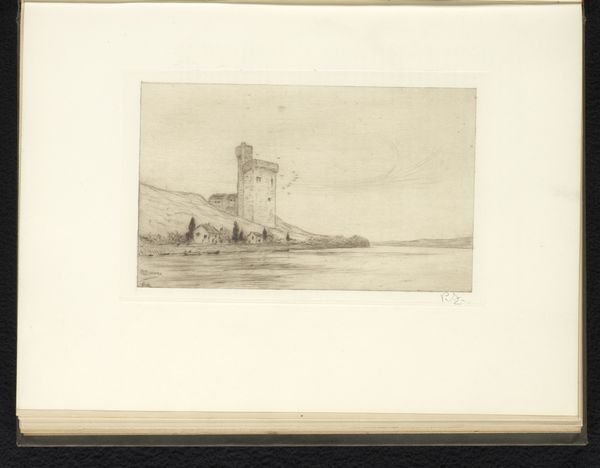
drawing, print, etching
#
pencil drawn
#
drawing
#
light pencil work
# print
#
etching
#
pencil sketch
#
old engraving style
#
landscape
#
pencil work
Dimensions: height 149 mm, width 287 mm
Copyright: Rijks Museum: Open Domain
Curator: Before us is "Gezicht op Linlithgow Palace en Linlithgow Abbey," a 19th-century print by A. Murray. The scene depicts the ruins of Linlithgow Palace and Abbey set within a landscape. Editor: Immediately, I'm struck by its tonal range, the way the artist has rendered such complex architecture with relatively minimal etching, almost sketch-like. It projects a strong mood of historical melancholy. Curator: The site itself carries a powerful historical weight, serving as a focal point in the Scottish Wars of Independence and being the birthplace of Mary Queen of Scots, with subsequent traumatic political and personal associations that ripple through British and Scottish history. Its ruinous state also serves as a tangible reflection of the decay of power and shifting allegiances. Editor: Observe how the artist plays with line and depth. The eye is guided from the relative detail in the foreground trees to the hazy rendition of the Palace and Abbey ruins on the horizon. It uses atmospheric perspective to convey not just distance but also the weight of time. Curator: Exactly. That layering of perspective speaks to broader imperial themes. Here, we see how landscape conventions intersected with emerging nationalist and romantic sentiments surrounding ruined architecture and the concept of a venerable past and powerful critique of modern impositions. Editor: Though the print medium has inherent constraints, Murray seems to celebrate these. Look closely at the sky; its gradient and soft tonal effect contrast starkly with the sharper, more defined lines of the buildings. Curator: One cannot look at the artwork without considering Scotland’s long fraught relations with its dominant neighbour and how Scotland managed its self-image and articulated national identity within Great Britain and beyond it through objects like this print. The imagery serves as a stark reminder of power struggles. Editor: I find it interesting how that foreground tree on the right disrupts a balanced composition to add asymmetry that creates some compositional tension. Curator: And I appreciate that it uses the perspective from that single tree and the angle of approach that offers a nuanced reading into power dynamics, where nature frames and perhaps critiques those ambitions. Editor: Absolutely, a fresh look into art and context for our modern ear! Curator: Indeed, another powerful message delivered through this single vista!
Comments
No comments
Be the first to comment and join the conversation on the ultimate creative platform.
